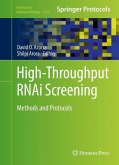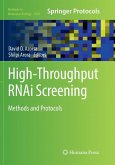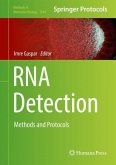This volume discusses the latest technologies used to study all aspects of Fragile-X Syndrome (FXS). The chapters in this book cover topics such as monitoring for epigenetic modifications at the FMR1 locus; modeling FXS with human pluripotent stem cells, mouse neural progenitors; mouse versus human-based models for FXS pre-clinical research; and Fragile-X associated with Tremor/Ataxia Syndrome (FXTAS). Written in the highly successful Methods in Molecular Biology series format, chapters include introductions to their respective topics, lists of the necessary materials and reagents, step-by-step, readily reproducible laboratory protocols, and tips on troubleshooting and avoiding known pitfalls.
Cutting-edge and thorough, Fragile-X Syndrome: Methods and Protocols is a valuable tool to help scientists working towards one day developing a therapeutic solution to improve the symptoms of FXS.
Chapter "Induced Neurons for the Study of Neurodegenerative and Neurodevelopmental Disorders" is available open access under a Creative Commons Attribution 4.0 International License via link.springer.com.
Cutting-edge and thorough, Fragile-X Syndrome: Methods and Protocols is a valuable tool to help scientists working towards one day developing a therapeutic solution to improve the symptoms of FXS.
Chapter "Induced Neurons for the Study of Neurodegenerative and Neurodevelopmental Disorders" is available open access under a Creative Commons Attribution 4.0 International License via link.springer.com.
"The main audience is basic scientists involved in laboratory medicine, but there is enough clinical information to attract the attention of clinicians. Clinical geneticists may find it interesting as the questions asked by current technology provide answers to the phenotypic clinical variances observed. Graduate students involved in fragile X syndrome would find this book essential. ... The illustrations are well selected and appropriate." (Luis F Escobar, Doody's Book Reviews, June 07, 2019)








